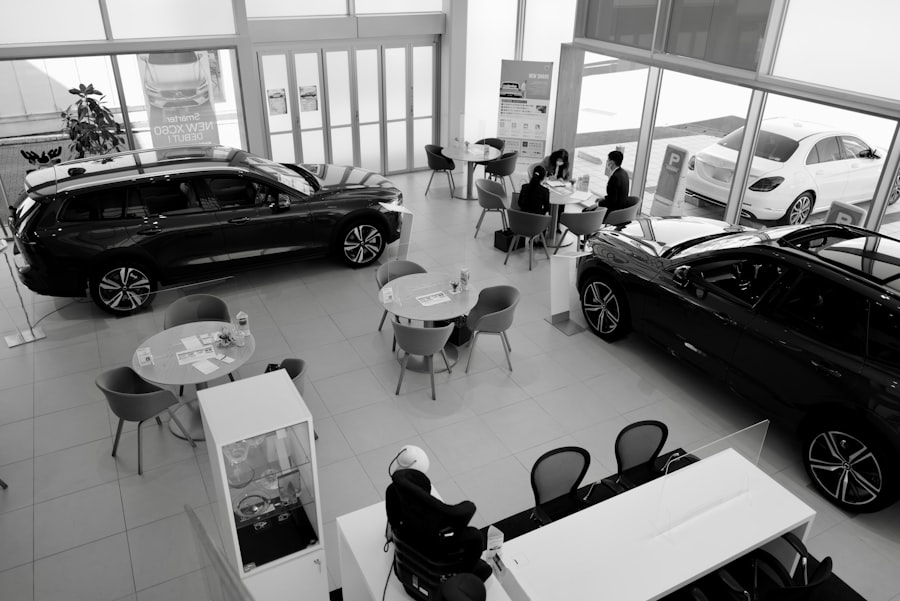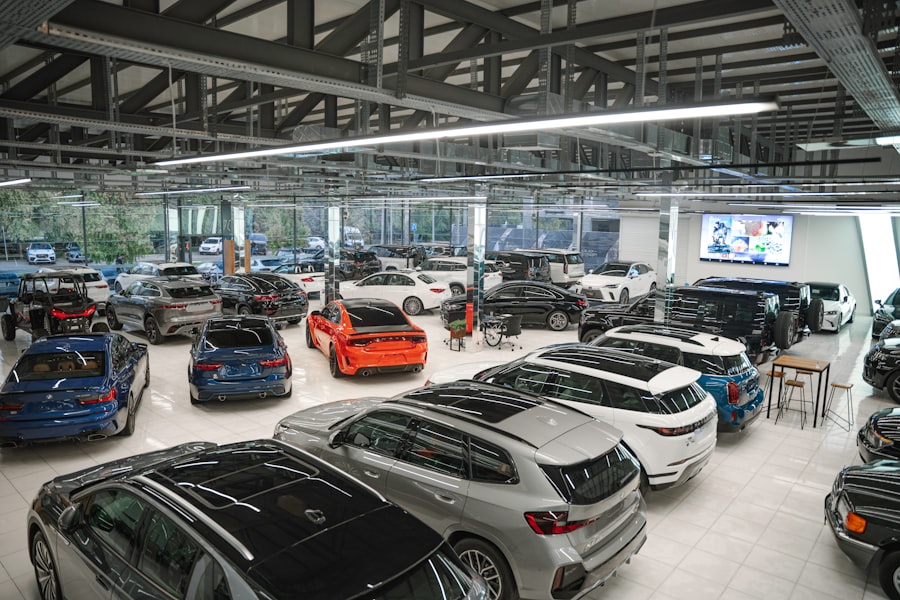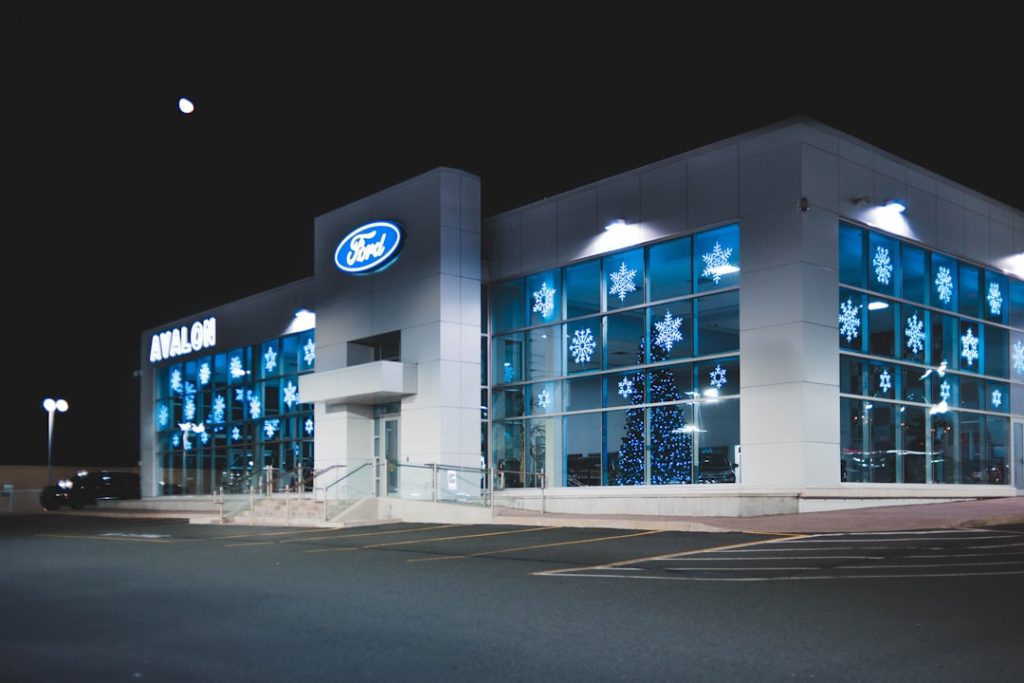In the highly competitive automotive industry, effective marketing is not just an option; it is a necessity for dealers aiming to thrive. The landscape of consumer behavior has evolved dramatically, with potential buyers increasingly relying on digital platforms to research vehicles, compare prices, and read reviews before making a purchase. This shift underscores the importance of a robust marketing strategy that not only showcases the dealership’s inventory but also builds a strong brand presence.
Automotive dealers must recognize that marketing serves as the bridge connecting them to their target audience, facilitating engagement and fostering trust. Moreover, marketing plays a crucial role in differentiating a dealership from its competitors. With numerous options available to consumers, a well-crafted marketing campaign can highlight unique selling propositions, such as exceptional customer service, exclusive promotions, or specialized financing options.
By effectively communicating these differentiators, automotive dealers can create a compelling narrative that resonates with potential buyers. This narrative not only attracts customers but also cultivates loyalty among existing ones, ultimately driving repeat business and referrals.
Key Takeaways
- Effective marketing is crucial for automotive dealers to boost sales and stay competitive.
- Marketing agencies provide expertise and tailored strategies to enhance dealership visibility and customer engagement.
- Digital marketing, including social media, plays a key role in reaching and influencing potential car buyers.
- Building a strong online presence helps automotive dealers attract more leads and improve brand reputation.
- Measuring campaign success and selecting the right marketing agency are essential for maximizing marketing ROI.
How a Marketing Agency Can Help Automotive Dealers
Partnering with a marketing agency can significantly enhance the effectiveness of an automotive dealer’s marketing efforts. These agencies bring specialized expertise and resources that may not be available in-house, allowing dealerships to focus on their core operations while benefiting from professional marketing strategies. A marketing agency can conduct thorough market research to identify trends, consumer preferences, and competitive landscapes, providing valuable insights that inform targeted campaigns.
This data-driven approach ensures that marketing efforts are aligned with the needs and behaviors of potential customers. Additionally, a marketing agency can develop and execute comprehensive marketing plans tailored specifically for automotive dealers. This includes crafting compelling advertising content, designing eye-catching visuals, and selecting the most effective channels for distribution.
Whether it’s traditional media like print and radio or digital platforms such as social media and search engines, a marketing agency can optimize the mix to maximize reach and engagement. Furthermore, agencies often have access to advanced tools and technologies that facilitate tracking and analyzing campaign performance, enabling continuous improvement and adaptation to changing market conditions.
Strategies for Increasing Sales Through Marketing

To increase sales effectively, automotive dealers must implement a variety of strategic marketing initiatives. One powerful approach is the use of targeted advertising campaigns that focus on specific demographics or geographic areas. By utilizing data analytics, dealers can identify key customer segments and tailor their messaging accordingly.
For instance, a dealership might run a campaign promoting family-friendly vehicles in suburban areas where families are more likely to reside. This targeted approach not only increases the likelihood of conversion but also optimizes marketing budgets by reducing waste. Another effective strategy is the implementation of promotional events and sales incentives.
Seasonal sales events, trade-in bonuses, or financing offers can create urgency and encourage potential buyers to take action. For example, a dealership might host a “Year-End Clearance Sale” with limited-time offers on select models. Such events not only attract foot traffic but also generate buzz in the community, enhancing brand visibility.
Additionally, leveraging customer testimonials and success stories in marketing materials can build credibility and trust, further motivating potential buyers to choose a particular dealership over competitors.
The Role of Digital Marketing in the Automotive Industry
| Metric | Description | Value/Statistic | Source/Year |
|---|---|---|---|
| Online Car Research | Percentage of car buyers who research vehicles online before purchase | 95% | Google Automotive Study, 2023 |
| Digital Ad Spend in Automotive | Proportion of total automotive marketing budget allocated to digital channels | 60% | Statista, 2024 |
| Social Media Influence | Percentage of car buyers influenced by social media content | 70% | HubSpot, 2023 |
| Lead Generation via Digital Channels | Share of automotive leads generated through digital marketing | 75% | Automotive News, 2023 |
| Mobile Device Usage | Percentage of automotive searches conducted on mobile devices | 80% | Google, 2023 |
| Video Content Engagement | Increase in engagement rates for automotive video ads compared to static ads | 120% higher | Wyzowl, 2023 |
| Email Marketing ROI | Return on investment for email campaigns in automotive sector | 38:1 | DMA, 2023 |
| Virtual Showroom Visits | Growth in virtual showroom visits due to digital marketing efforts | 150% increase | McKinsey, 2024 |
Digital marketing has revolutionized the way automotive dealers connect with consumers. With the majority of car buyers conducting online research before visiting a dealership, having a strong digital presence is paramount. Search engine optimization (SEO) plays a critical role in ensuring that a dealership’s website ranks high in search engine results when potential customers are looking for vehicles or services.
By optimizing website content with relevant keywords and providing valuable information about vehicles, dealerships can attract organic traffic and increase visibility. Moreover, digital marketing encompasses various channels such as email marketing, pay-per-click advertising, and social media campaigns. Email marketing allows dealerships to nurture leads by sending personalized messages that keep potential buyers informed about new arrivals, special promotions, or service reminders.
Pay-per-click advertising enables dealerships to target specific keywords and demographics, ensuring that their ads reach the right audience at the right time. Social media platforms provide an interactive space for dealerships to engage with customers directly, share content, and showcase their inventory through visually appealing posts.
Creating a Strong Online Presence for Automotive Dealers
Establishing a strong online presence is essential for automotive dealers looking to attract and retain customers in today’s digital age. A well-designed website serves as the cornerstone of this presence, acting as both an information hub and a virtual showroom. The website should be user-friendly, mobile-responsive, and optimized for search engines to ensure that visitors have a seamless experience while browsing inventory or accessing dealership information.
High-quality images and detailed descriptions of vehicles can enhance the online shopping experience, making it easier for potential buyers to envision themselves in their next car. In addition to a functional website, automotive dealers should invest in content marketing strategies that position them as industry experts. This could involve creating blog posts that address common questions about car buying, maintenance tips, or industry trends.
By providing valuable content, dealerships can establish credibility and build trust with their audience. Furthermore, incorporating customer reviews and testimonials on the website can enhance social proof, encouraging potential buyers to choose that dealership over others.
Leveraging Social Media for Automotive Dealer Marketing

Social media platforms have become indispensable tools for automotive dealer marketing due to their vast reach and ability to foster engagement. By creating profiles on popular platforms such as Facebook, Instagram, Twitter, and LinkedIn, dealerships can connect with potential customers where they spend much of their time online. Social media allows dealers to showcase their inventory through visually appealing posts featuring high-quality images or videos of vehicles in action.
Engaging content such as behind-the-scenes looks at the dealership or employee spotlights can humanize the brand and create a sense of community. Moreover, social media advertising offers targeted options that enable dealerships to reach specific audiences based on demographics, interests, and behaviors. For instance, Facebook Ads can be tailored to target users who have shown interest in automotive content or have recently searched for vehicles online.
Additionally, running contests or giveaways on social media can generate excitement and encourage user participation while expanding the dealership’s reach through shares and likes. Engaging with followers through comments and messages fosters relationships that can lead to increased customer loyalty.
Measuring the Success of Automotive Dealer Marketing Campaigns
To ensure that marketing efforts yield positive results, automotive dealers must implement robust measurement strategies to evaluate campaign performance. Key performance indicators (KPIs) such as website traffic, lead generation rates, conversion rates, and return on investment (ROI) provide valuable insights into how well marketing initiatives are performing. For instance, tracking website traffic can reveal which campaigns are driving visitors to the site and which channels are most effective in attracting potential buyers.
Additionally, utilizing tools like Google Analytics allows dealerships to monitor user behavior on their websites. Understanding metrics such as bounce rates and average session duration can help identify areas for improvement in website design or content strategy. Surveys and feedback forms can also be employed to gather direct input from customers regarding their experiences with marketing campaigns or overall dealership interactions.
By analyzing this data regularly, dealerships can make informed decisions about future marketing strategies and allocate resources more effectively.
Choosing the Right Marketing Agency for Your Automotive Dealership
Selecting the right marketing agency is crucial for automotive dealers seeking to enhance their marketing efforts effectively. When evaluating potential agencies, it is essential to consider their experience within the automotive industry specifically. Agencies with a proven track record of working with dealerships will have a deeper understanding of industry nuances and consumer behavior patterns unique to car buying.
Furthermore, assessing an agency’s portfolio and case studies can provide insight into their creative capabilities and strategic approaches. It is beneficial to look for agencies that offer a comprehensive range of services—from digital marketing to traditional advertising—ensuring that all aspects of the dealership’s marketing needs are met under one roof. Establishing clear communication channels and setting measurable goals from the outset will also contribute to a successful partnership between the dealership and the chosen agency.
By aligning expectations and maintaining open dialogue throughout the collaboration process, automotive dealers can maximize the impact of their marketing initiatives.




